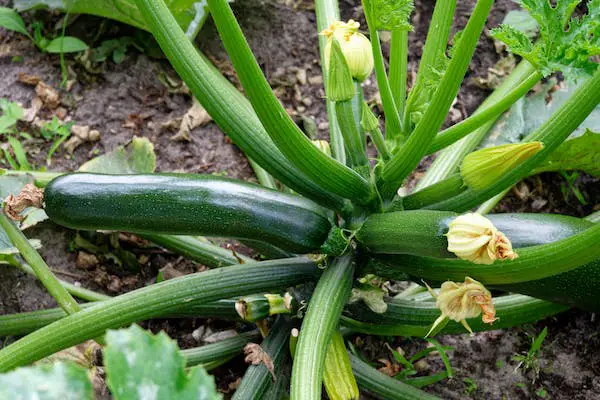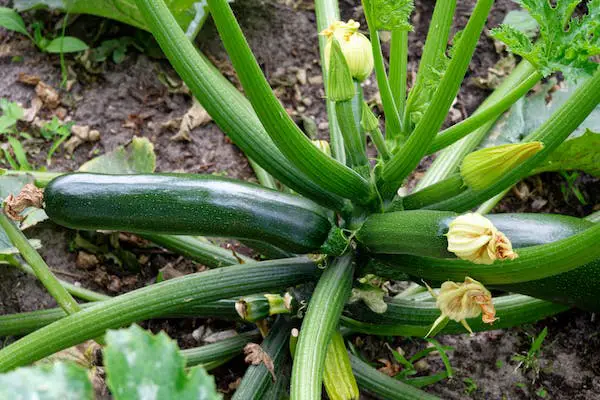How to Start Cucumber Farming in Nigeria 2024: Expert Guide
Congratulations on taking the bold step to start and own a cucumber farm. Because of you, I compiled this guide on how to start Cucumber farming in Nigeria.
Cucumber is a popular vegetable that is consumed by many Nigerians.
It is a green, crunchy, and refreshing vegetable that can be eaten raw, used in salads, or processed into pickles.
Cucumber farming is a lucrative business in Nigeria, as there is a high demand for fresh cucumbers in the market.
Cucumber farming can also be done in any part of the country, as long as the climatic and soil conditions are suitable.
In this blog post, we will guide you on how to start cucumber farming in Nigeria.
Let’s get started!
Check out How to Start Pepper Farming in Nigeria 2024: Expert Guide
How Profitable is Cucumber Farming in Nigeria?
Cucumber farming is one of the most profitable agribusinesses in Nigeria.
According to some estimates, you can make up to N3 million from one acre of cucumber farm in three months.
This is because cucumber is a fast-growing and high-yielding crop that can be harvested multiple times in a season.
Cucumber also has a long shelf life and can be stored for up to two weeks without refrigeration.
However, The profitability of cucumber farming depends on several factors, such as the variety of cucumber, the quality of seeds, the cost of inputs, the level of management, the market price, and the target market.
Generally, the higher the quality of the cucumber, the higher the price it can fetch in the market.
Also, the more organized the market, the higher the profit margin.
For example, selling to supermarkets, hotels, or restaurants can earn you more than selling to open markets or roadside vendors.

Cost of Cucumber Farming in Nigeria
The cost of cucumber farming in Nigeria varies depending on the scale and method of production.
However, some of the common costs involved are:
- Land Rent: This is the cost of leasing or buying a suitable piece of land for cucumber farming.
The cost of land depends on the location, size, and availability of the land. The average cost of renting one acre of land in Nigeria is between N10,000 to N20,000 per year.
- Seeds: This is the cost of buying quality hybrid seeds for cucumber farming.
Hybrid seeds are preferred because they produce higher yields, better quality, and more disease-resistant cucumbers than open-pollinated seeds.
The average cost of one kilogram of hybrid cucumber seeds in Nigeria is between N30,000 to N40,000
- Fertilizers: This is the cost of buying and applying organic or inorganic fertilizers to enhance soil fertility and crop growth.
Fertilizers are essential for cucumber farming, as they provide the necessary nutrients for the plant.
The average cost of one bag of NPK fertilizer in Nigeria is between N5,000 to N6,000.
- Manure: This is the cost of buying and applying animal or plant-based manure to improve the soil structure and water retention.
Manure is also beneficial for cucumber farming, as it adds organic matter and microorganisms to the soil.
The average cost of one ton of poultry manure in Nigeria is between N15,000 to N20,000.
- Pesticides: This is the cost of buying and applying chemical or biological agents to control pests and diseases that may affect the cucumber crop.
Pesticides are necessary for cucumber farming, as they protect the plant from insects, fungi, bacteria, viruses, and weeds.
The average cost of one liter of pesticide in Nigeria is between N1,000 to N2,000
- Irrigation: This is the cost of installing and operating a system of pipes, pumps, sprinklers, or drips to supply water to the cucumber farm.
Irrigation is important for cucumber farming, as it ensures a steady and adequate supply of water to the plant.
The average cost of installing a drip irrigation system for one acre of land in Nigeria is between N150,000 to N200,000
- Labor: This is the cost of hiring and paying workers to perform various tasks on the cucumber farm
Such as land preparation, planting, weeding, pruning, harvesting, and marketing.
Labor is an important cost for cucumber farming, as it requires a lot of manual work and supervision.
The average cost of hiring one laborer per day in Nigeria is between N1,000 to N1,500
- Tools and equipment: This is the cost of buying and maintaining various tools and equipment that are used on the cucumber farm, such as hoes, cutlasses, knives, baskets, scales, sprayers, etc.
Tools and equipment are important for cucumber farming, as they facilitate the work and improve efficiency.
The average cost of buying one set of basic tools and equipment for cucumber farming in Nigeria is between N10,000 to N15,000
- Staking: This is the cost of buying and erecting wooden or metal poles or trellises to support the cucumber vines and fruits.
Staking is optional for cucumber farming, but it is recommended because it improves the quality, quantity, and appearance of the cucumbers.
The average cost of staking one acre of cucumber farm in Nigeria is between N20,000 to N30,000
Based on the above costs, the total cost of starting cucumber farming in Nigeria for one acre of land can range from N350,000 to N600,000, depending on the scale and method of production.
Read How to Start Beans Farming in Nigeria 2024: Expert Guide
How to Start Cucumber Farming in Nigeria: Step-by-Step Process
In this section, we will show you a step-by-step guide on how to start Cucumber farming in Nigeria.
To start cucumber farming in Nigeria, you need to follow these steps:
Step 1: Land preparation:
The first stage in how to start Cucumber farming in Nigeria is to clear the land of any weeds, stones, or debris, and plow or till the soil to a depth of 15 to 20 centimeters.
You need to add organic or inorganic fertilizers and manure to the soil and mix them well.
You need to make raised beds or ridges of about 1 meter wide and 15 to 20 centimeters high and leave a space of about 1 meter between them.
You need to make holes or furrows about 2 to 3 centimeters deep and 30 to 40 centimeters apart on the beds or ridges.
Step 2: Planting:
You need to sow the seeds directly into the holes or furrows and cover them lightly with soil
Step 3: Watering:
Then water the cucumber plants regularly and adequately, depending on the weather and soil moisture.
You need to avoid overwatering or underwatering, as both can affect crop growth and quality.
You need to use an irrigation system that suits your water availability and budget.
You need to water the cucumber plants early in the morning or late in the evening, to avoid evaporation and sunburn.
Step 4: Weeding:
The next stage in how to start cucumber farming in Nigeria is to weed the cucumber farm frequently and manually, to remove any unwanted plants that may compete with the cucumber plants for nutrients, water, and space.
You need to avoid using herbicides, as they may harm the cucumber plants or contaminate the soil.
You need to weed the cucumber farm at least once every two weeks, or as soon as you notice any weeds.
Step 5: Pruning:
You need to prune the cucumber plants regularly and carefully, to remove any excess leaves, branches, or fruits that may reduce the yield or quality of the cucumbers.
You need to prune the cucumber plants when they are about 30 to 40 centimeters tall and leave only one or two main stems.
You need to prune the cucumber plants every week, or as soon as you notice any unwanted growth.
Step 6: Staking:
The next stage of how to start Cucumber farming in Nigeria is to stake the cucumber plants optionally and properly, to support the vines and fruits and prevent them from touching the ground.
You need to stake the cucumber plants when they are about 30 to 40 centimeters tall and tie them loosely with twine or wire.
Also, You need to use wooden or metal poles or trellises that are strong and durable.
You need to check and adjust the stakes regularly, to avoid any damage or injury to the plants or workers.
Step 7: Harvesting:
Our discussion on how to start cucumber farming in Nigeria won’t be complete if we don’t talk about harvesting the cucumbers when they are mature and ready for consumption or processing.
You need to harvest the cucumbers carefully and gently, using a sharp knife or scissors, and leaving a short stem attached to the fruit.
You need to harvest the cucumbers early in the morning or late in the evening, to avoid heat and sunburn.
You need to harvest the cucumbers every two or three days, or as soon as you notice any ripe fruits.
Step 8: Marketing:
Lastly, You need to market the cucumbers as soon as possible, to avoid spoilage and loss of quality.
You need to sort, grade, and package the cucumbers according to their size, shape, color, and weight.
Use clean, dry, and ventilated containers or crates, and label them with the name, date, and origin of the product.
Transport the cucumbers to the nearest market or buyer, using a suitable vehicle that can protect them from damage and exposure.
See also How to Start Plantain Farming in Nigeria 2024: Expert Guide
Conclusion on How to Start Cucumber Farming in Nigeria
Cucumber farming in Nigeria is a profitable and rewarding business because it is easy and simple, and it does not require much capital, skill, or technology.
However, cucumber farming also requires a lot of care and attention, as it is susceptible to pests, diseases, and environmental stress.
Therefore, you need to follow the expert tips that we have shared in this blog post, to ensure a successful and sustainable cucumber farming venture in Nigeria.
We hope this guide on how to start cucumber Farming in Nigeria is helpful.
FAQs about How to start Cucumber farming in Nigeria
How long does it take to grow cucumbers in Nigeria?
It takes about 50 to 60 days from planting to harvesting, depending on the variety and growing conditions.
How much can I make from cucumber farming in Nigeria?
You can make up to N3 million from one acre of cucumber farm in three months, depending on the yield, quality, and market price of the cucumbers
How can I prevent and control pests and diseases on my cucumber farm?
You can prevent and control pests and diseases on your cucumber farm by using quality seeds, practicing crop rotation, maintaining good hygiene, applying organic or inorganic pesticides, and using resistant varieties.
How can I extend the shelf life of my cucumbers?
You can extend the shelf life of your cucumbers by storing them in a cool, dry, and well-ventilated place, away from direct sunlight and heat. You can also refrigerate them at a temperature of 10 to 12°C, and a relative humidity of 85 to 95%.


